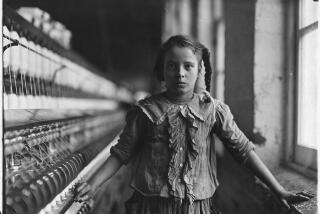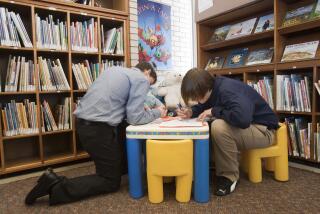All-Work, No-Play
I loved Dennis McLellan’s fine article on working teen-agers (“Part-Time Work Ethic: Should Teens Go for It?” Nov. 7). I can recall my own teen years, back in the nifty ‘50s, here in the Southland.
Like many lads my age, I had jobs such as mowing lawns and selling newspapers before I reached high school, but I felt I had truly arrived when I attained my 16th birthday and could apply for a job as a box boy, a highly coveted job.
As for the report from the book by Ellen Greenberger and Laurence Steinberg, I thoroughly concur, based on my own work/academic schedule.
I realized I had to study harder than before, not only because of the time spent at work, but because my mother (like the parents of Fairfax High’s John Fovos in the article) stressed that my grades better not drop. They actually improved, because I balanced my time and quit watching television almost entirely.
However, I cannot forget the fact, these many years later, that I truly missed a lot, and we’re only young once. This was painfully evident to me when school would end for the day, and I’d go home, change to my white dress shirt (a requirement for a box boy), put my black bow tie in my pocket and walk to work. I’d notice my classmates sitting on the lawn of our school, across the street at the library or going out for such after-school activities as sports and theater arts.
Furthermore, as the article stated, many of my classmates, including some who worked with me at the supermarket, would drop their tougher classes in exchange for more (work) hours, and the usual cop-out was, “I’ll make it up at summer school.” Usually, with the beautiful Southern California summers came the beach and beach parties, and even more hours of work--in short, no summer school. Some even quit high school and joined the military. Such was their indifference to school after earning money.
Education is something no one can take away from you, and cars, clothes and other worldly goods eventually wear out. It’s what you learn and absorb that lasts, and as I occasionally glance at my high school annuals, I wish I could go back in time.
EDDIE CRESS
Los Angeles






